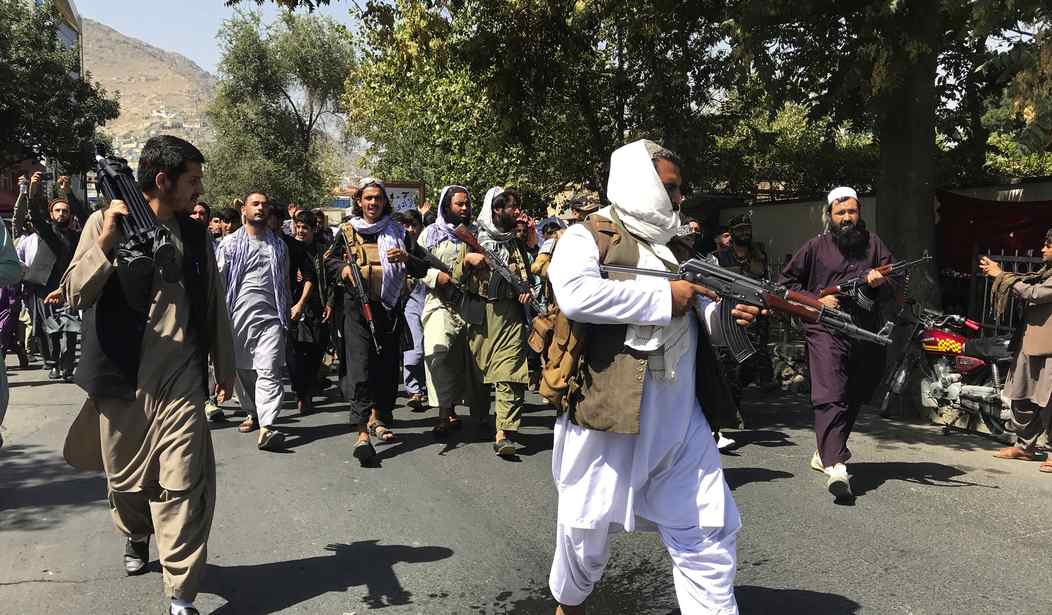The Taliban continue to break all of the promises they made to the international community after their overthrow of the U.S.-backed government in Kabul in the wake of America’s disastrous withdrawal from the region. And they are once again targeting the rights of their own women and girls after promising to show more “respect.” After closing most of the girls’ schools in the country and forbidding them from most types of employment, the terror leaders have now banned women’s beauty salons in most of the country. The order was issued in a letter from supreme leader Hibatullah Akhundzada, and it gives all salons thirty days to comply and submit a report verifying their closure. (AP)
The Taliban are banning women’s beauty salons in Afghanistan, a government spokesman said Tuesday.
It’s the latest curb on the rights and freedoms of Afghan women and girls, following edicts barring them from education, public spaces and most forms of employment.
A spokesman for the Taliban-run Virtue and Vice Ministry, Mohammad Sidik Akif Mahajar, didn’t give details of the ban. He only confirmed the contents of a letter circulating on social media.
The letter didn’t offer a reason for the order, but the intent is obvious. Going to a beauty salon is a sign of vanity. And there’s no reason to have your hair styled or put on makeup if you’re not going to be allowed out of the house without your face and hair covered.
All of these abusive tactics regarding women are taking place right out in the open. Meanwhile, the United Nations is still doing little more than paying lip service to the situation. The UN’s own newsletter highlights a recent interview they held with Markus Poztel, a representative of the UN Assistance Mission in Afghanistan. He impotently stated that there is “no middle ground” on the issue of women and girls’ education. But he also managed to work in some praise for the Taliban as well.
We have to face the realities on the ground. The Taliban control … almost all of the country. And that’s an opportunity for the Taliban to stabilize and pacify the country. It is also a responsibility because they have to provide services to the people. They have to provide good governance and the rule of law. This is where we see deficits. The authorities have an interest in talking to us because they see us as a bridge builder. We can help convey messages from Afghanistan to the outside world, and we do it the other way as well.
Poztel went on to say that the UN’s mission is to “build bridges” between Afghanistan and other countries. He warned that isolation “is not an option” when it comes to working with “the de facto authorities,” as he calls the Taliban. And he feels that more foreign aid will be required.
Poztel pointed to a recent ban on cultivating poppies for the heroin trade as a sign of “progress” that the Taliban has achieved. He claims that poppy harvesting has decreased since the Taliban took over, though it is a challenge to monitor agricultural work in the more remote provinces. That may be true, but Afghanistan still remains the world’s largest producer of opium. The Taliban is unlikely to crack down very hard since illicit drugs are still one of the group’s biggest cash cows
The situation for women and girls in Afghanistan remains dire. But it’s also unclear what anyone can actually do about it. The Taliban is back in full control. and short of another invasion, the West’s ability to influence their behavior is limited at best.









Join the conversation as a VIP Member